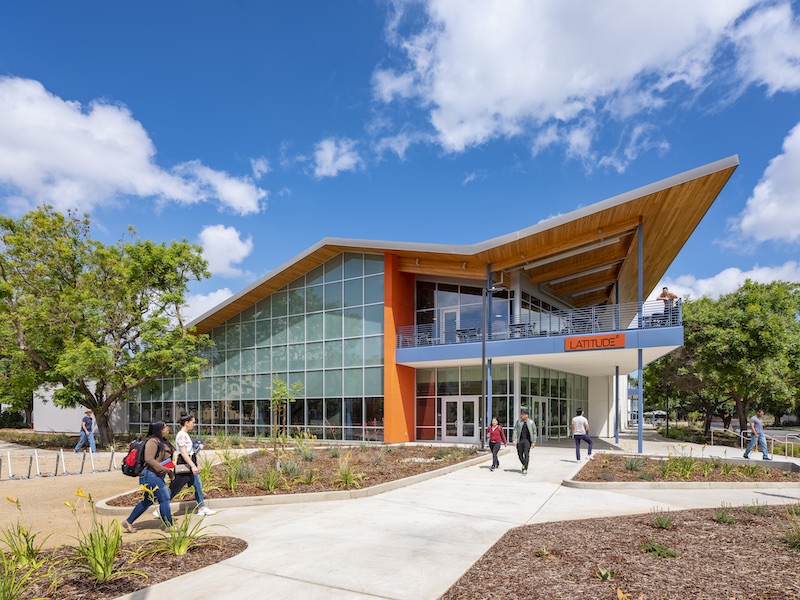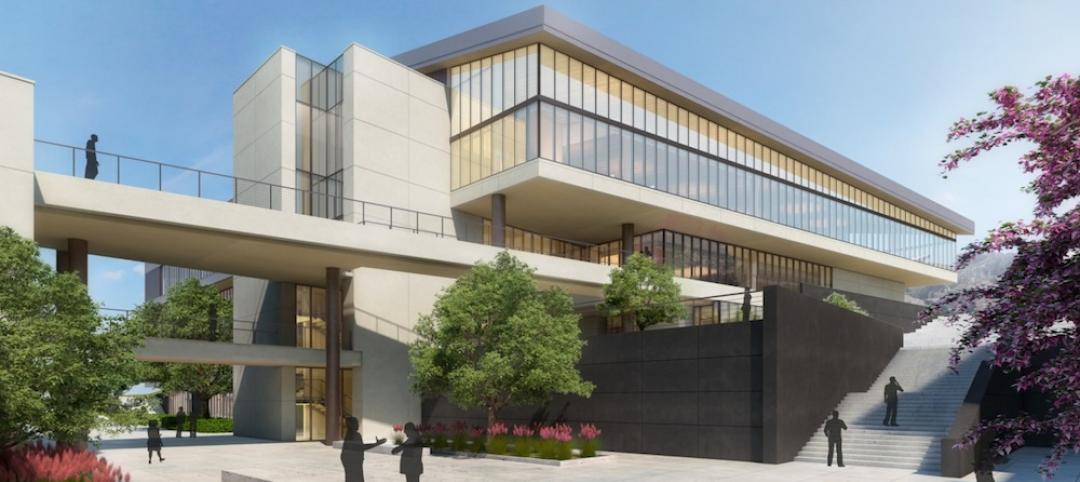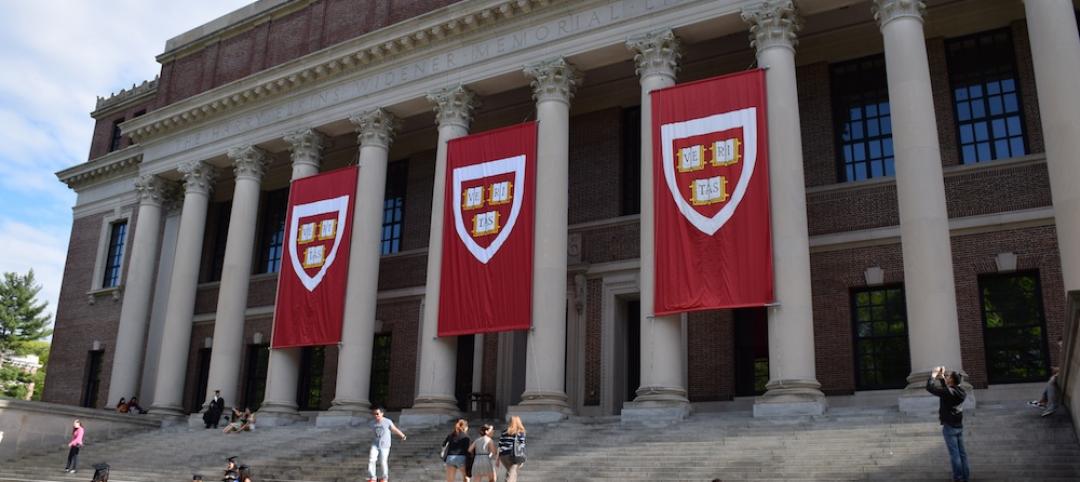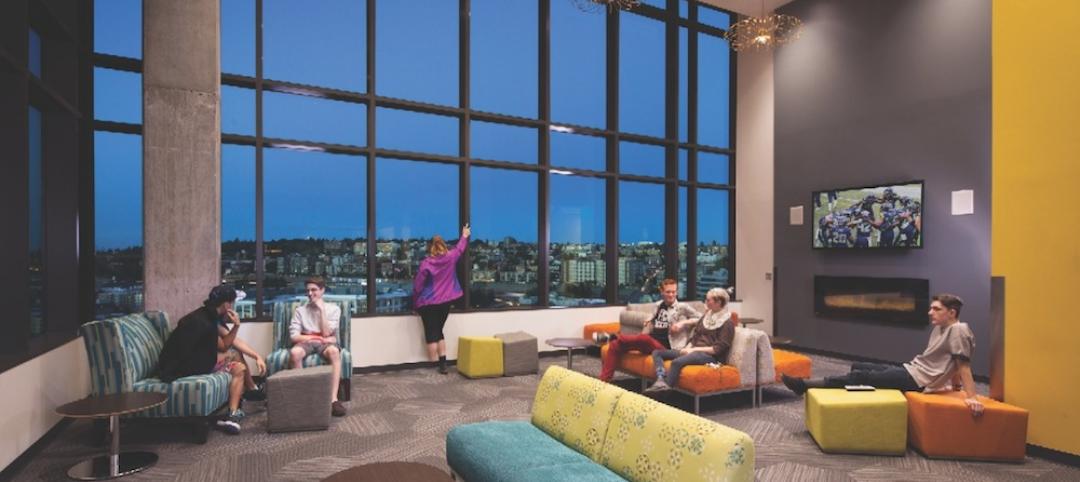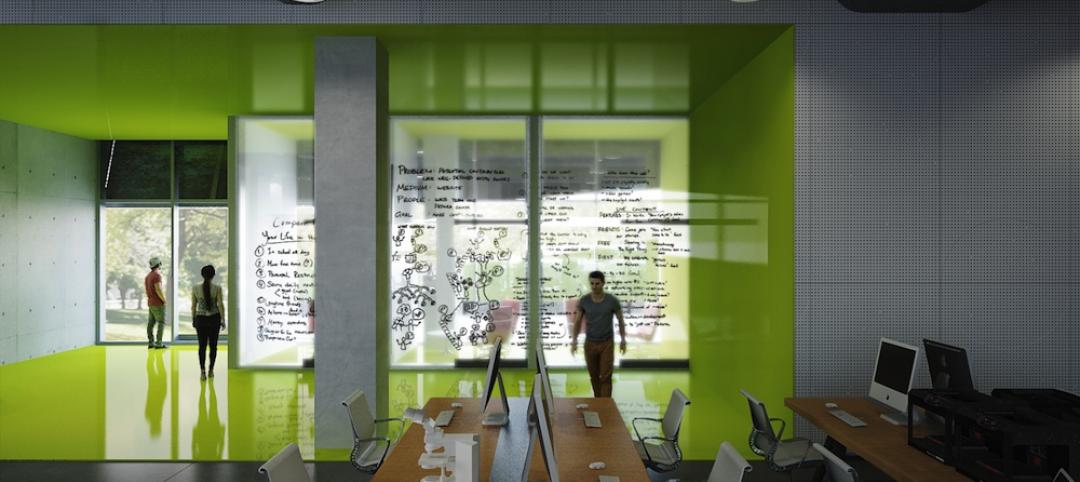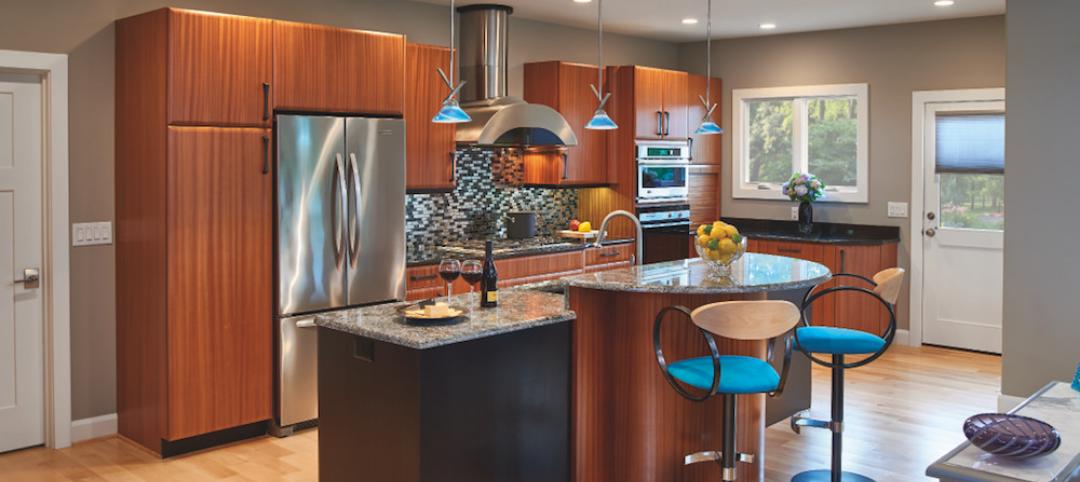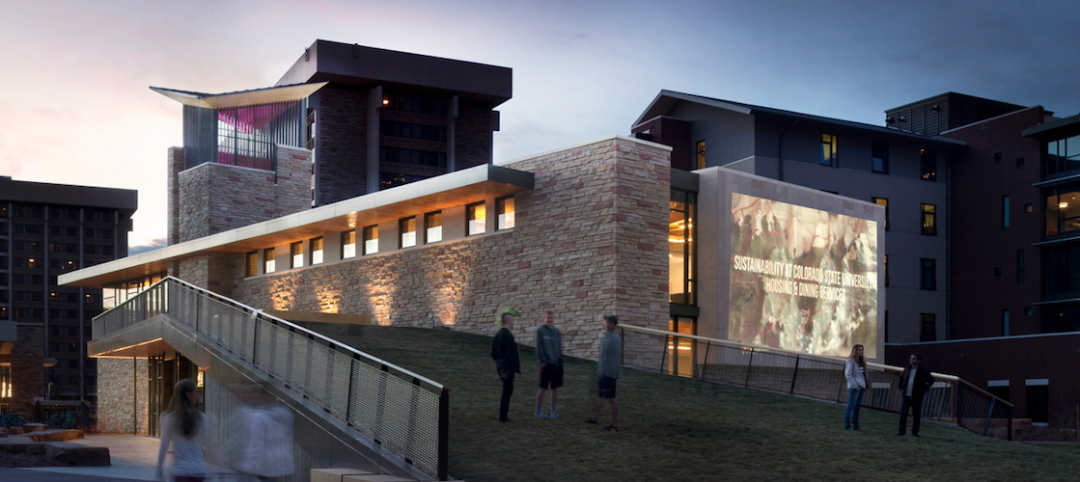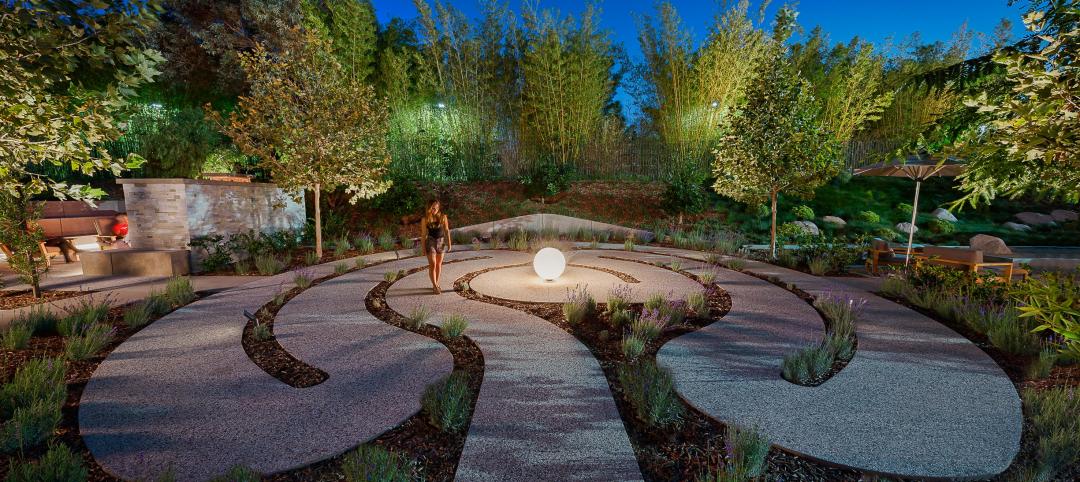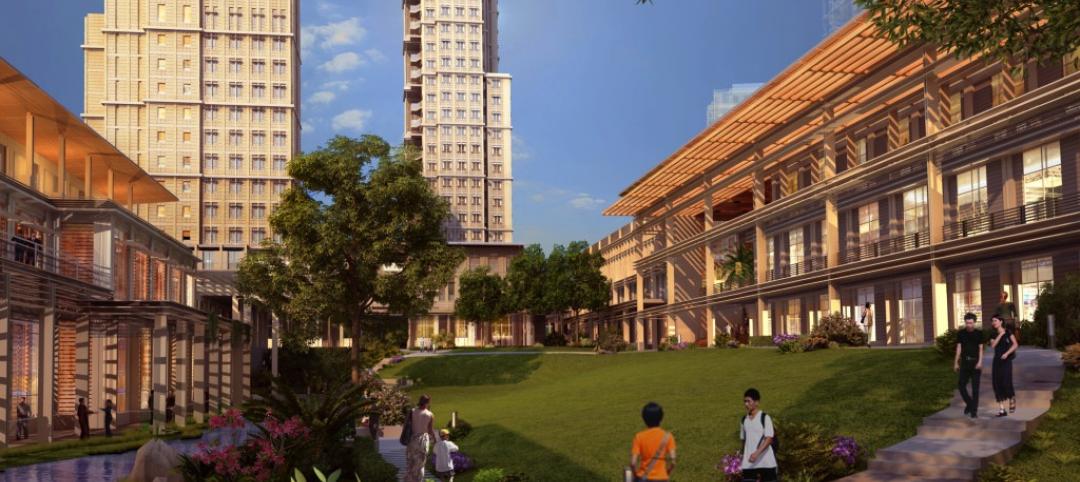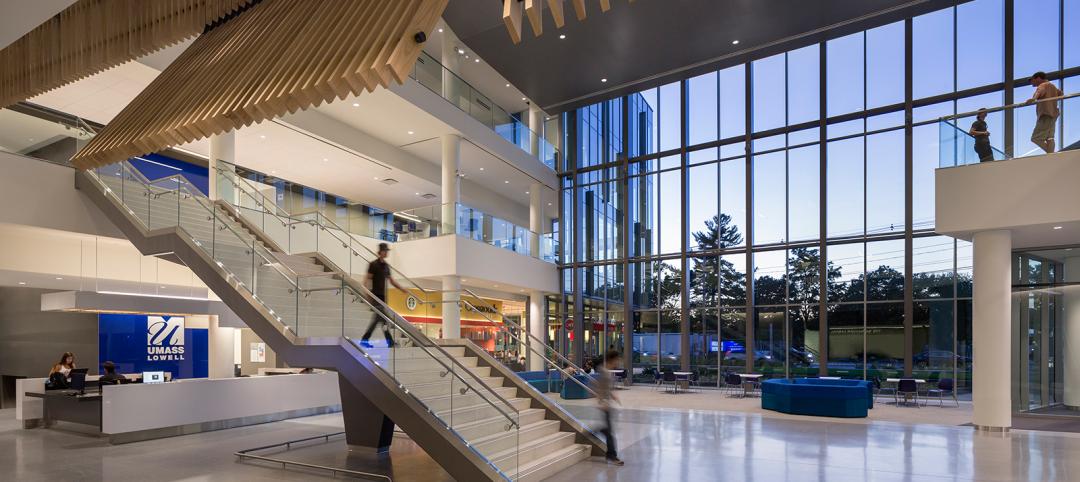The Latitude Dining Commons at UC Davis is a new 500-seat facility with a design inspired by the Central Valley. The space represents the food and farming culture of both the university and the surrounding region.
The building is sited between Tercero residential buildings to the south and future science buildings across Bioletti Way. The design features an exposed structure of glulam beams and cross laminated wood decking, pitched roofs, and simple, functional materials. A light metal clad folded roof, which draws inspiration from a barn roof, floats above large glass walls and extends out to shade entrances and terraces.
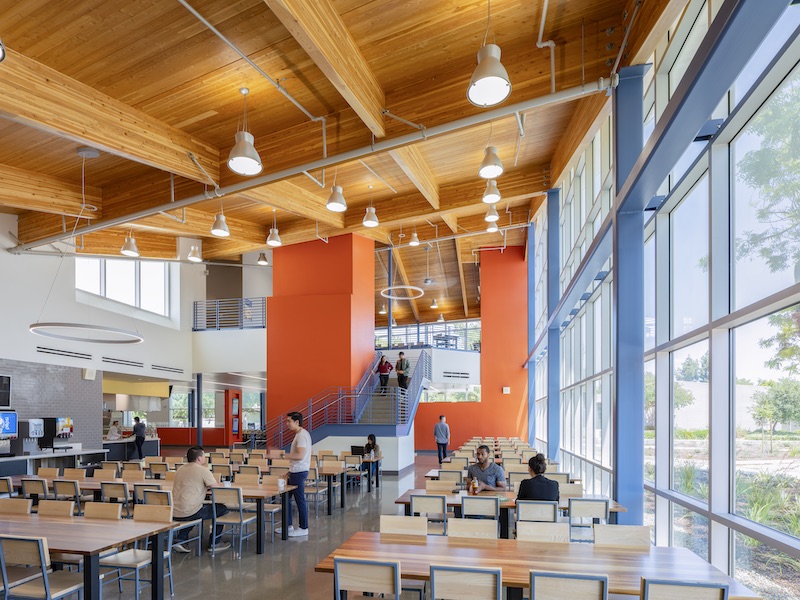
Multiple pathways link the sidewalk with the dining and retail entrances and a continuous band of active public terraces shares views with pedestrians and cyclists along Bioletti Way. Tables and chairs, benches, and steps encourage students to gather, eat, or study.
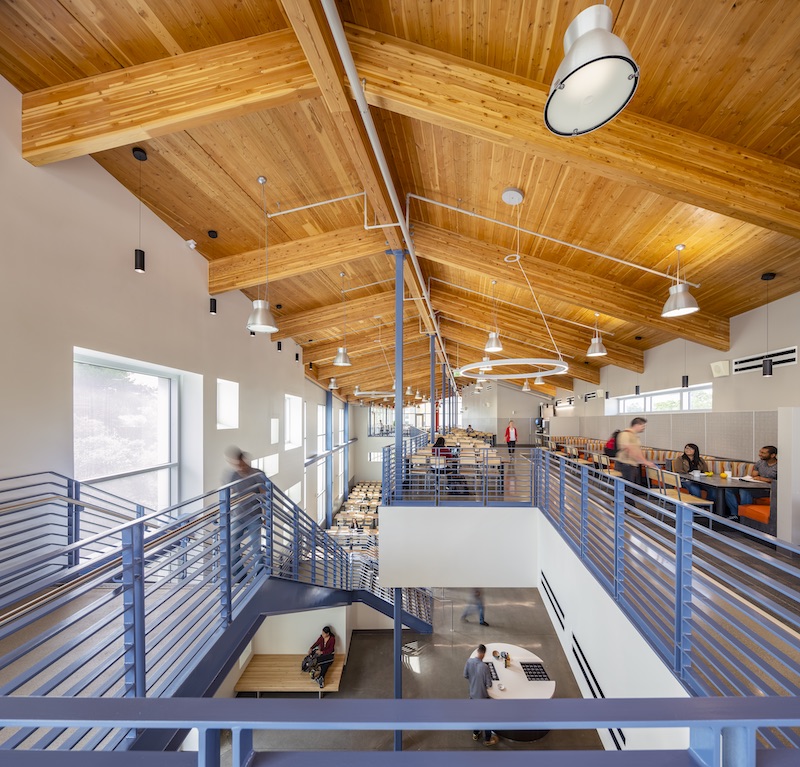
The project includes a full commercial kitchen, provides multiple international food platforms, and has retail grab-n-go and convenience options. A two-level area features front of house public functions (such as dining, servery, queuing, and retail) while a one-level mass includes all back of house functions. Painted steel stairs between the first and second levels stand free in the space that adds to the “see and be seen” dynamic. Also included are loading docks for deliveries, outdoor seating opportunities, circulation, site improvements, and bicycle parking.
HED was the project architect with Otto Construction as the general contractor. The project is targeting LEED Gold certification.
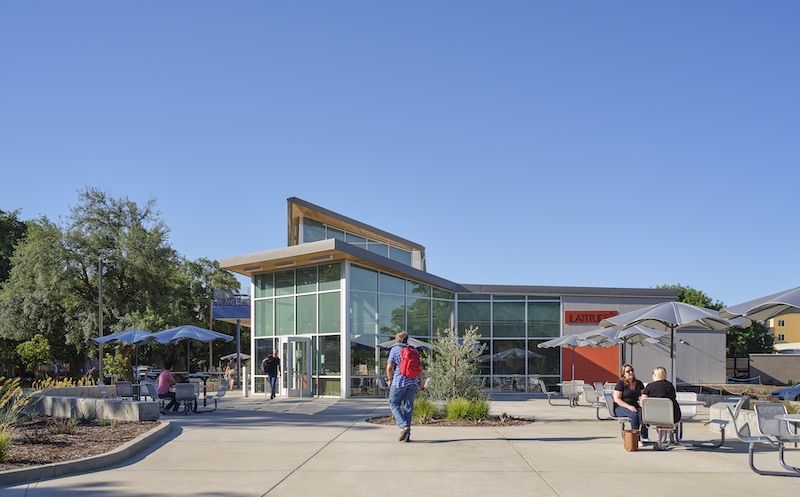
Related Stories
University Buildings | Mar 11, 2016
How architects can help community colleges promote community on campus
Even in the face of funding challenges and historic precedent, there are emerging examples of how partnership between two-year academic institutions and designers can further elevate community on campus. CannonDesign's Carisima Koenig has a few key examples.
University Buildings | Mar 1, 2016
The 5 most questionable college and university rankings of 2015
SmithGroupJJR's David Lantz identifies five of the most flawed higher education rating systems, including ones with arbitrary categories, and others that equate college with a transactional investment.
University Buildings | Feb 29, 2016
4 factors driving the student housing market
In the hyper-competitive higher education sector, colleges and universities view residence halls as extensions of their academic brands, both on and off campus.
University Buildings | Feb 17, 2016
New ideas to help universities attract and empower STEM students
Educational institutions are focusing on new learning strategies that engage students in activities, enable collaboration across STEM disciplines, and encourage students to use their hands just as much as their heads, as Stephen Blair of CannonDesign writes.
Multifamily Housing | Feb 1, 2016
Top 10 kitchen design trends for 2016
Charging stations, built-in coffeemakers, and pet stations—these are among the top kitchen design trends for the coming year, according to a new survey of kitchen and bath designers by the National Kitchen & Bath Association.
| Jan 14, 2016
How to succeed with EIFS: exterior insulation and finish systems
This AIA CES Discovery course discusses the six elements of an EIFS wall assembly; common EIFS failures and how to prevent them; and EIFS and sustainability.
Greenbuild Report | Dec 10, 2015
AASHE’s STARS tool highlights the university sector’s holistic approach to sustainability
Buzzwords like “living lab” and “experiential learning” are indicative of the trend toward more holistic sustainability programs that incorporate all facets of college life.
University Buildings | Nov 5, 2015
How active design is reshaping higher education campuses
Active design, a dynamic approach to design with a primary focus on people, assists students in learning to make healthy choices, writes LPA's Glenn Carels.
University Buildings | Nov 4, 2015
Yale completes Singapore campus
The Yale-NUS College has three residence halls and two administrative and academic buildings, with courtyards in the middle of them all.
University Buildings | Oct 16, 2015
5 ways architecture defines the university brand
People gravitate to brands for many reasons. Campus architecture and landscape are fundamental influences on the college brand, writes Perkins+Will's David Damon.


